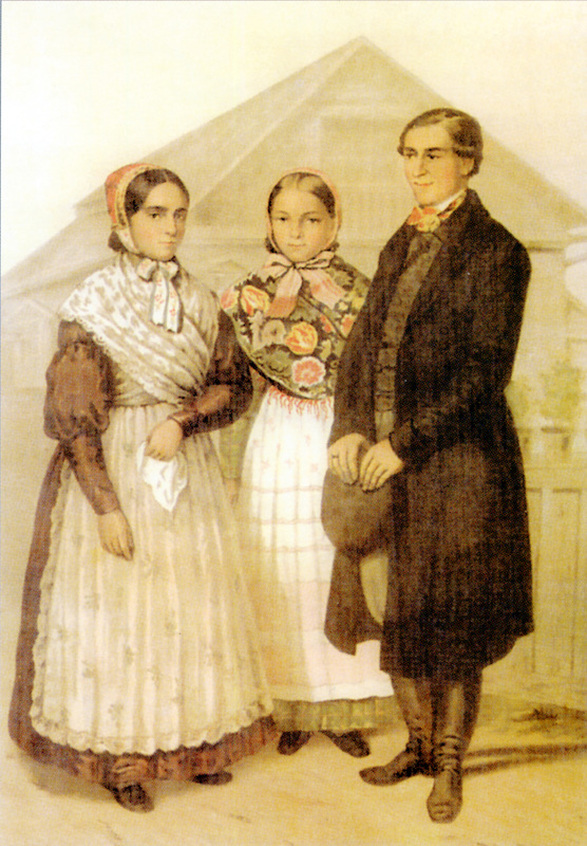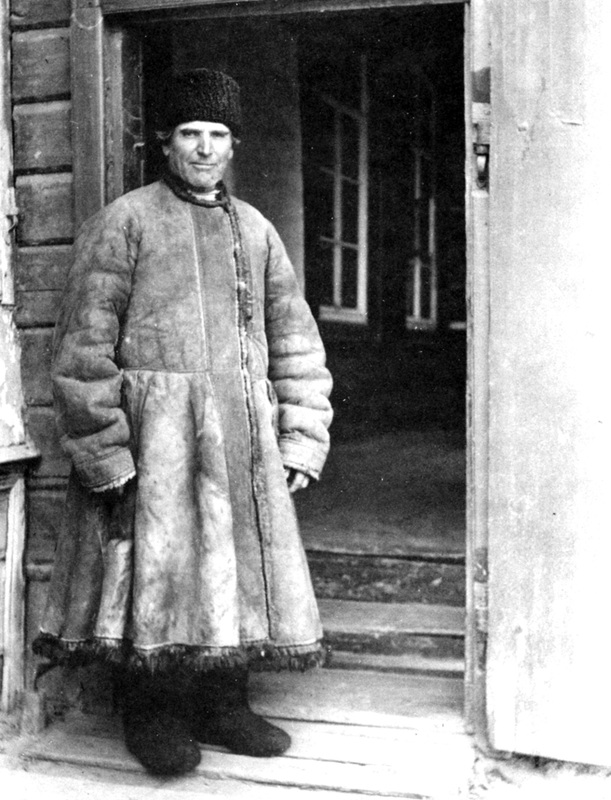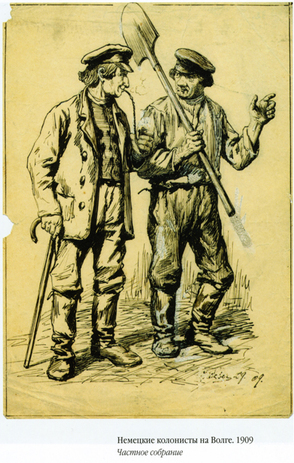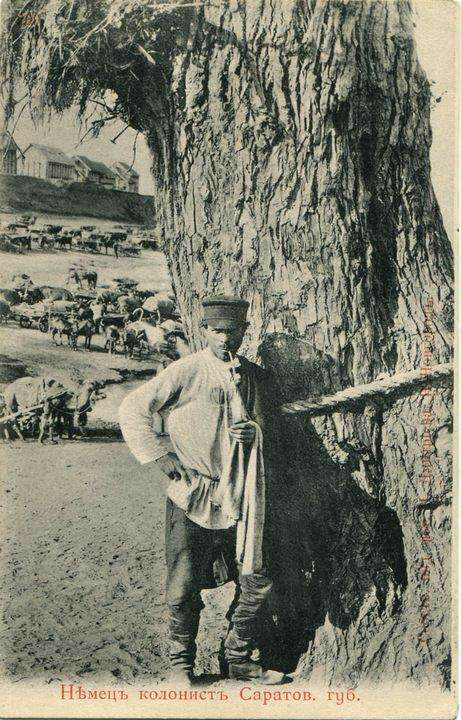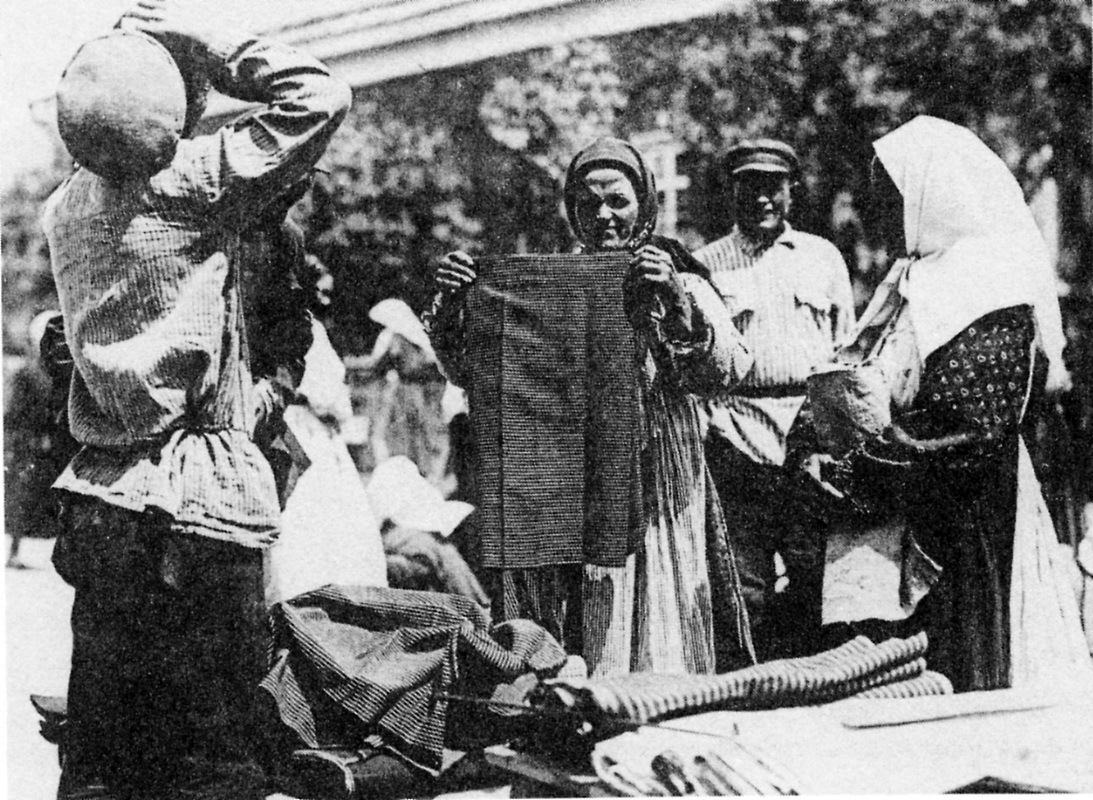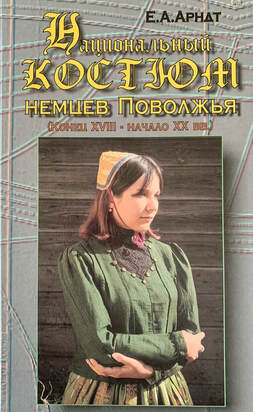Traditions > Clothing
Clothing
The wardrobe of the Volga Germans evolved from clothing worn by the first settlers who had transitioned from a very different climate in their Western European homelands. The Volga region required new solutions for scorching summer heat and frigid winters. The colonists learned from and adapted clothing worn by the Russians and other ethnic groups who lived near them. This resulted in hybrid solutions that maintained elements of their traditional clothing blended with a Russian flair.
Males wore a plain loose shirt belted at the waist and worn over a pair of trousers. The shirt was customarily worn untucked. In winter, most men wore a billed cap, which was replaced by a fur cap (often with ear flaps). Calf high felt boots, known as Filzstiefel in German and Valenki in Russian, were also worn in the winter. During the summer, either leather boots were worn, or the men would go barefoot.
Women typically wore a black or brown scarf and a loose-fitting smock, which might also have a sleeveless jumper (Sarafan in Russian) worn over it.
Most colonists had a set of Sunday clothes that were only worn to church or on other special occasions.
Women typically wore a black or brown scarf and a loose-fitting smock, which might also have a sleeveless jumper (Sarafan in Russian) worn over it.
Most colonists had a set of Sunday clothes that were only worn to church or on other special occasions.
Sources
Arndt, Elena A. Nacional'nyj Kostjum Nemcev Povolž'ja (konec XVIII - Načalo XX Vv.) ; Posobie S Metodičeskimi Rekomendaciajmi. Perm': Izdat.-Poligrafičeskij Kompleks Zvezda, 2000. Print.
Long, James. From Privileged to Dispossessed. Lincoln, Nebraska: University of Nebraska, 1988. 264. Print.
Lonsinger, August, and Marion Hanke. Sachliche Volkskunde Der Wolgadeutschen. Remshalden: Bernhard Albert Greiner, 2004. Print.
Lonsinger, August, and Marion Hanke. Sachliche Volkskunde Der Wolgadeutschen. Remshalden: Bernhard Albert Greiner, 2004. Print.
Last updated November 28, 2023
